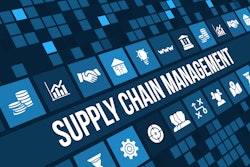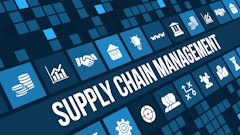
The healthcare industry generates vast amounts of data yet turning that data into informed decisions can be challenging. Regardless of facility type, the ability to track and manage packages is essential for delivering high-quality patient care and lowering operational costs. While many healthcare organizations have some level of access to shipping data and analytical tools, maximizing their potential for cost savings and efficiency can be difficult without the dedicated resources. To address this, a comprehensive approach combining robust data analytics with the insights of experienced logistics professionals is necessary, enabling clear visibility across the entire supply chain.
The power of visibility
True supply chain visibility extends beyond basic shipment tracking. It provides healthcare organizations with the ability to identify unseen opportunities for cost reduction, operational improvements and enhanced efficiency. By gaining a clear understanding of delivery performance, shipping trends and underlying behaviors, organizations can address factors that significantly impact total logistics costs.
Achieving this level of visibility requires a comprehensive view of logistics spending, along with the analytical expertise to interpret the data and make informed decisions. For organizations lacking the internal resources to undertake this complex task, third-party logistics providers with specialized knowledge of the healthcare sector can serve as invaluable collaborators providing the necessary expertise to unlock the potential of the data.
The CPG industry: a model for data-driven success
Healthcare has a history of adopting best practices from other industries, such as lean management and supply chain optimization. One particularly relevant example is the consumer-packaged goods (CPG) industry, where the pairing of robust data analytics with expert analysis has become a cornerstone of informed decision-making.
CPG companies of all sizes recognize the importance of data storytelling and translating complex metrics into concrete actions. Often, they leverage data analytics extensively to identify consumer behavioral trends and help optimize product performance. More importantly, these companies rely on analytical experts to interpret raw data into actionable insights and recommendations. Similarly, healthcare logistics providers can benefit from the application of data analytics, which can reveal opportunities to reduce costs and improve efficiency.
Like the CPG industry, healthcare logistics may find value in adopting a data-driven, customer-centric approach to support decision-making, and collaborating with experts to achieve greater visibility into logistics data to help improve efficiency and cost management.
Seeing the big picture
A third-party logistics provider can offer extensive visibility into shipping data, but the data itself is merely the starting point. By working with data analytics experts, healthcare organizations can:
- Reduce unmanaged spend to help maximize cost savings
- Track packages in near real-time
- Improve on-time delivery performance
- Gain greater visibility into shipping spend and activities
- Identify opportunities for cost savings and efficiency improvements
- Optimize shipping modes and service levels to help lower costs
By collaborating with experienced third-party logistics providers, healthcare organizations can gain access to the tools and expertise needed to transform complex data into actionable insights, driving tangible improvements in cost management and operational efficiency.
Delivering a spectrum of support
Recognizing that every healthcare organization has unique needs, logistics providers should offer a range of solutions tailored to specific requirements, including:
- Reports and analytics: Providing self-service access to a wide range of reports addressing common questions.
- Cross functional support: Offering support across supplier connections, carrier performance, auditing and allocating costs.
· Industry benchmarks: Providing insights into national industry best practices and performance targets.
Each of these solutions offers distinct advantages and works best when a logistics provider takes the time and effort to understand the specific needs of a healthcare organization. Third-party logistics providers can help healthcare organizations identify opportunities for lowering costs and improving efficiency, establish realistic savings goals and provide the support needed to achieve those goals.
The next step
As healthcare supply chains become more complex, the drive for greater efficiency and cost savings will continue to grow. Logistics represents an often overlooked, yet significant opportunity to achieve both.
To maximize the impact, healthcare organizations should integrate proven technology with dedicated analytical expertise. This approach unlocks the potential of logistics data to help drive meaningful improvements in cost containment, efficiency, and, ultimately, the support of quality patient care.
When evaluating your organization's data analytics capabilities in logistics, consider these key questions:
- How effectively are you leveraging data to gain visibility into your supply chain?
- Are you equipped with the tools and resources needed to analyze complex logistics data?
- Do you have access to the expertise required to translate data into actionable insights and drive continuous improvement?
Looking ahead, the future of healthcare logistics will be shaped by emerging technologies such as artificial intelligence, machine learning and blockchain. Predictive analytics will play an increasingly critical role in forecasting demand, optimizing inventory levels and proactively preventing supply chain disruptions. Greater collaboration will be essential to unlock the potential of these innovations.
The combination of advanced data analytics solutions and specialized logistics expertise can offer a clear pathway for healthcare organizations seeking to optimize their supply chains and improve overall performance.




















